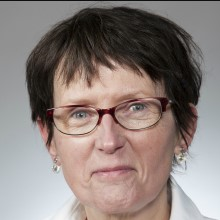Turing the Philosopher: Established Debates and New Developments
A special issue of Philosophies (ISSN 2409-9287).
Deadline for manuscript submissions: closed (31 October 2022) | Viewed by 29062
Special Issue Editors
Interests: Alan Turing; Wittgenstein; history and philosophy of computer science; philosophy of language and logic; philosophy of psychology; philosophy of religion; Karl Popper
Special Issue Information
Dear Colleagues,
Alan Turing carried out groundbreaking research in several fields, including mathematics and theory of computability, cryptography, computer science and artificial intelligence, and computational biology. His philosophical work was also pioneering, although perhaps less well-known—with the exception of his famous imitation game for testing intelligence in machines. In this Special Issue, we focus on Turing the philosopher.
Examples of Turing’s philosophical work are his research on computation, the foundations of mathematics, the nature of mind, and machine intelligence—and there are more examples of explicitly and implicitly philosophical work in his writings.
We are seeking (1) discussions of the implications of Turing’s philosophical work for established debates, philosophical and scientific; and (2) fresh perspectives on the philosophical significance of Turing’s writings. The overall goal of this Special Issue is to position Turing’s philosophical work amid state-of-the art research today.
Prof. Dr. Diane Proudfoot
Dr. Zhao Fan
Guest Editors
Manuscript Submission Information
Manuscripts should be submitted online at www.mdpi.com by registering and logging in to this website. Once you are registered, click here to go to the submission form. Manuscripts can be submitted until the deadline. All submissions that pass pre-check are peer-reviewed. Accepted papers will be published continuously in the journal (as soon as accepted) and will be listed together on the special issue website. Research articles, review articles as well as short communications are invited. For planned papers, a title and short abstract (about 100 words) can be sent to the Editorial Office for announcement on this website.
Submitted manuscripts should not have been published previously, nor be under consideration for publication elsewhere (except conference proceedings papers). All manuscripts are thoroughly refereed through a double-blind peer-review process. A guide for authors and other relevant information for submission of manuscripts is available on the Instructions for Authors page. Philosophies is an international peer-reviewed open access semimonthly journal published by MDPI.
Please visit the Instructions for Authors page before submitting a manuscript. The Article Processing Charge (APC) for publication in this open access journal is 1400 CHF (Swiss Francs). Submitted papers should be well formatted and use good English. Authors may use MDPI's English editing service prior to publication or during author revisions.
Keywords
- Alan Turing
- artificial intelligence
- computability
- cryptography
- history of computing
- imitation game
- philosophy of logic
- philosophy of mathematics
- philosophy of mind
- theoretical computer science






